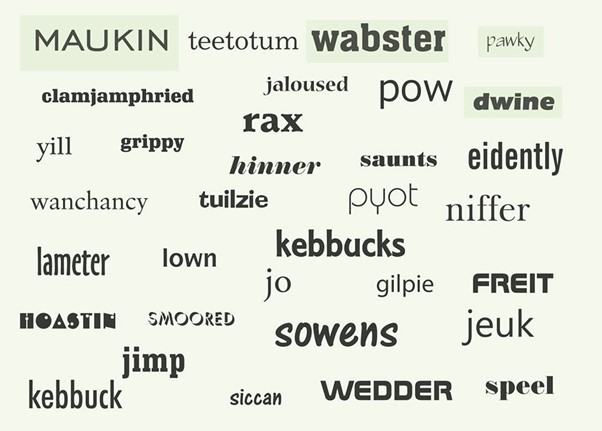Witch Wood – old ways and old words
Specific writers have the skill of reaching back to a historical past and breathing life and vitality onto its circumstances. This was certainly the role of Sir Walter Scott though in the novel ‘Witch Wood’, John Buchan brings to life the circumstances of life in Scotland in the seventeenth century around 1640 in the Borders when various civil conflicts were in place.
The main storyline of the novel relates to the exploits of David Sempill, a newly appointed minister to the parish of Woodilee. An underlying theme of the novel is the conflict between the Christianity of the day and the grip of darker pagan practices on his parishioners.
A noted feature of the work, however, is the skillful inclusion of Scots words within tracts of dialogue. As a separate exercise I ‘collected’ over 30 specific Scots words from the novel that attracted attention and which by their sound and also spelling hint at traces of language long in the making – but almost – though not quite – forgotten.

The image depicts these in a variety of letter fonts in order to – as it were – separate their identities. It is relevant to describe a few of these to illustrate their sharpness of style and meaning.
Wanchancy – unlucky, inauspicious
Wabster – a Weaver
Pawky – mocking. as in ‘pawky wit’
Clamjamphried – surrounded, hemmed-in
Yill – ale
Grippy – miserly, mean.
Tuilzie – quarrel or skirmish
Niffer – to barter, trade
Lameter- a lame or crippled person
Kebbucks – a cheese
Gilpie – a lively or mischievous fellow
Smoore – to suffocate, smother
Sowens – dish of fermented oats husks
Speel – to play, take amusement
John Buchan, as it were, whets the appetite for learning more about Scots words that have passed out of use in Scotland. This is achieved by separating the main narrative of ‘Witch Wood’ in English from specific conversations it contains in Scots. A range of on-line tools assists the curious enquirer to follow up specific word use in more detail.